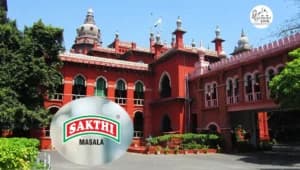The Kerala High Court has confirmed that Canon Law does not prohibit valid adoptions for Christians, provided they adhere to civil law. This landmark ruling came while examining the provisions of the Code of Canons of the Eastern Churches, which acknowledges adopted children. Additionally, Canon 110, followed by some Christian sects, states that children adopted under civil law are regarded as the legal children of their adoptive parents.
Justice A. Badharudeen noted:
“Thus, there is no prohibition in Canon Law for having a valid adoption. But there is no personal law in India applicable to Christians recognizing adoption. However, a valid adoption made in accordance with civil law, applicable to both the child and adoptive parents, is recognized by Canon Law. The essentials of a valid adoption include the capacity of the adopter, capacity of the adoptee, capacity of the giver, consent, and compliance with civil law.”
Read Also:- Motor Vehicles Act: Kerala High Court Rules Section 163A Claims Can Only Be Made Against Owner or Insurer
The court observed that historically, adoption in the Christian diocese required taking the adopted child before the Bishop or Prelate with certain testimonials. The adoption would be formalized through an ‘Olla’ or certificate issued by the Bishop. However, if the adoptive parents later had biological children, the ‘Olla’ would be rendered invalid.
The court emphasized that proving adoption requires concrete evidence of the physical act of giving and taking the child. Merely presenting a baptism certificate that lists adoptive parents’ names or demonstrating a long association with a family does not establish legal adoption.
Case Background
This ruling came in response to an appeal in a partition suit filed by the siblings of the deceased Joseph J. Karuvelil. The deceased’s wife, Mary Joseph, opposed the suit, claiming that her husband had legally adopted a child from a children’s home with full inheritance rights. The adoptee also contested the suit, asserting his status as the legally adopted son.
The trial court, however, ruled in favor of the deceased’s siblings, holding that the adoption was not legally established. The High Court upheld this decision, clarifying that the District Court had only granted guardianship rights over the child and not legal adoption.
Read Also:- Kerala High Court Directs State to Submit Draft Composition of Working Group to Curb Ragging
The appellants submitted a baptism certificate and entries from the Mamodisa register as evidence of adoption. However, the court ruled that these documents did not satisfy the legal requirements to prove a valid adoption under civil law. The court stressed that merely expressing the intention to raise a child as one’s own does not fulfill the legal criteria for adoption. The absence of a formal adoption process, including the act of giving and taking, meant the adoptee could not inherit the deceased’s property.
The court referred to various past judgments concerning adoption in Christian law:
- Maxin George v. Indian Oil Corporation (2005) – This case established that Christian law does recognize adoption, but it must be backed by legal custom.
- Philips Alfred Malvin v. Gonsalvis (2011) – It ruled that adoption is recognized only when done per civil law.
- Biju Ramesh v. T.P. Vijayakumar (2005) – This judgment emphasized that the act of adoption must involve a physical giving and taking of the child.
- Pharez John Abraham v. Arul Jothi Sivasubramaniam K. (2020) – This Supreme Court case reaffirmed that adoption legally integrates the child into the adoptive family, granting them inheritance rights.
Case Title: Mary Joseph and Another v. Thomas Joseph and Others
Case No: RFA 166 of 2008
Date of Judgment: March 20, 2025
Legal Representatives:
- Appellants: Advocates George Joseph (Ittankulangara), Jacob Chacko
- Respondents: Advocates Roy Chacko, Sethuram Dharmapalan, Jomy George, Bhanu Thilak














